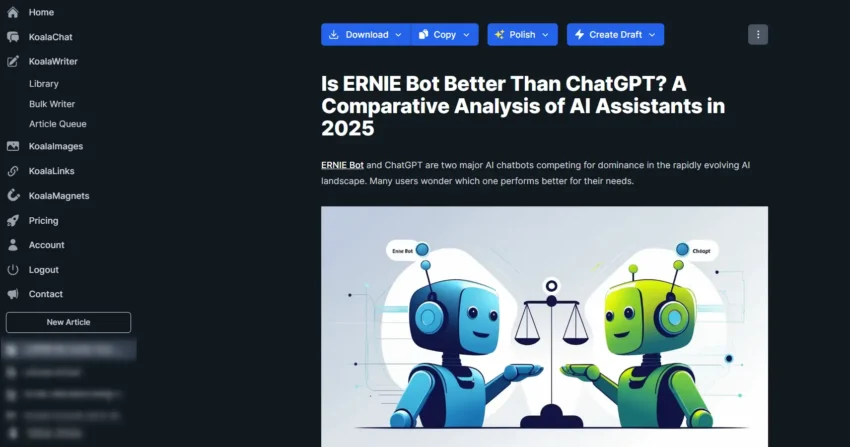Artificial Intelligence (AI) is a term that’s widely used today, but have you ever wondered who first came up with it?
The term was actually coined by a computer scientist named John McCarthy. Let’s dive into the history and significance of this term, breaking it down into easy-to-understand concepts.
The birth of AI: A simple breakdown
Artificial Intelligence refers to the simulation of human intelligence by machines, especially computer systems. The idea behind AI is to create technology that can think, learn, and make decisions like a human.
The term “Artificial Intelligence” was first introduced by John McCarthy in 1956. He was a computer scientist and cognitive scientist, meaning he studied how the human mind works and how computers could mimic that.
McCarthy introduced this term at a conference known as the Dartmouth Conference.
The Dartmouth Conference: The start of something big
The Dartmouth Conference is considered the birthplace of AI. Imagine a group of brilliant minds coming together to discuss how to make machines think like humans.
That’s what happened in 1956 when John McCarthy and other key figures like Marvin Minsky, Allen Newell, and Herbert A. Simon gathered to talk about AI.
This conference was groundbreaking because it laid the foundation for what AI would become. At that time, the idea of machines thinking and learning was revolutionary.
Today, AI is everywhere, from your smartphone to self-driving cars.
Breaking down key concepts
Here’s a breakdown of some important terms related to AI:
- Artificial Intelligence (AI): The ability of machines to perform tasks that typically require human intelligence, such as understanding language, recognizing patterns, solving problems, and making decisions.
- Cognitive Scientist: A person who studies how the human brain works, particularly how we think, learn, and remember things. John McCarthy was a cognitive scientist interested in teaching machines to do similar things.
- Dartmouth Conference: The event where the term AI was first coined. This conference is significant because it marked the beginning of AI as a field of study.
Why is John Mccarthy important?
John McCarthy is often called one of the “founding fathers” of AI. Alongside other scientists like Marvin Minsky, he played a crucial role in the development of AI. McCarthy’s work set the stage for future innovations in the field, and his introduction of the term AI was just the beginning.
What did John Mccarthy believe?
John McCarthy believed that machines could be made to think like humans. He wasn’t just interested in building smarter computers; he wanted to create machines that could solve problems, learn from experience, and even understand complex concepts.
AI today: A legacy of the dartmouth conference
The Dartmouth Conference wasn’t just a one-time event. It sparked decades of research and development in AI. Today, AI is an essential part of our lives. Whether you’re using voice assistants like Siri or Google Assistant, or enjoying personalized recommendations on platforms like Netflix, AI is behind it all.
Beyond the term: Mccarthy’s contributions
McCarthy’s influence extended far beyond coining the term “Artificial Intelligence”:
- LISP Programming Language: He developed LISP, one of the oldest high-level programming languages still in use, particularly in AI research.
- Time-Sharing Systems: McCarthy pioneered the concept of computer time-sharing, which allowed multiple users to interact with a single computer simultaneously.
- Philosophical Contributions: He made significant contributions to the philosophy of AI, exploring questions about machine consciousness and the nature of intelligence.
How AI has evolved
Since the Dartmouth Conference, AI has evolved in ways that John McCarthy and his colleagues could only dream of. Some key advancements include:
- Machine Learning: A branch of AI where computers learn from data without being explicitly programmed. This is how AI systems get better over time.
- Natural Language Processing (NLP): This allows AI to understand and respond to human language. Think of chatbots or voice assistants that can hold conversations with you.
- Robotics: AI is also used in robots that can perform tasks like assembling products in factories or even performing surgeries.
Why this matters to you
Understanding the origins of AI and who coined the term helps you appreciate how far we’ve come. It also gives you a glimpse into the future of technology. AI isn’t just a buzzword; it’s a field with a rich history and a bright future.
As AI continues to grow, it’s important to know where it all started. John McCarthy’s contribution at the Dartmouth Conference set the stage for innovations that are now part of everyday life.
The legacy continues
Today, over six decades since McCarthy coined the term, Artificial Intelligence has evolved into a field that touches nearly every aspect of our lives. From voice assistants to autonomous vehicles, AI technologies continue to push the boundaries of what machines can do.
The term “Artificial Intelligence” remains as relevant today as it was in 1955, serving as a testament to McCarthy’s foresight and the enduring nature of the field he helped establish.
As we continue to make strides in AI research and development, we owe a debt of gratitude to John McCarthy, whose simple yet powerful term has shaped the trajectory of one of the most transformative technologies of our time.











